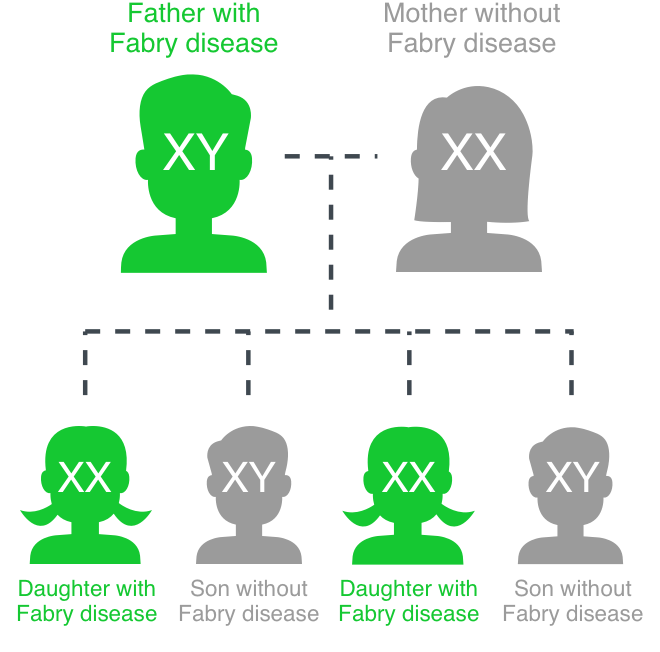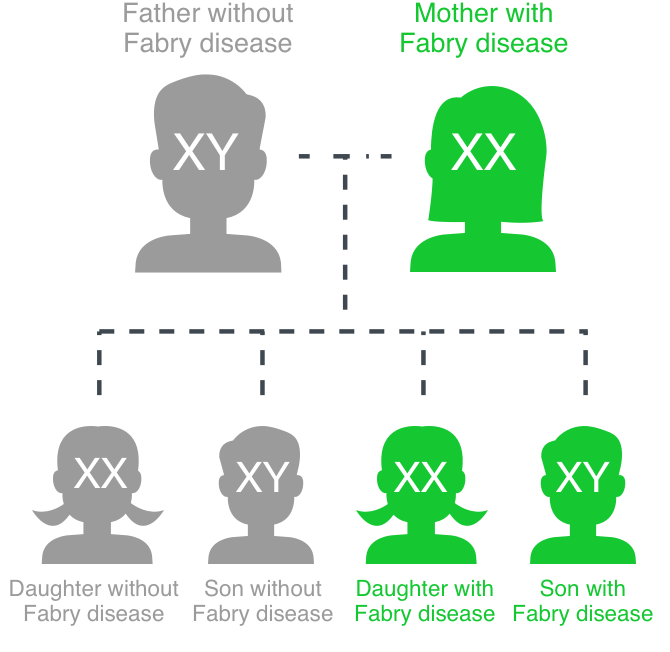fabrysymptoms.me
Genetics
How is Fabry disease inherited?
Fabry disease is not contagious, but it is a hereditary condition that can be genetically inherited from parents to children, in a pattern illustrated below.
Every cell in the human body contains chromosomes, which are thread-like structures carrying genetic information. Females have two X chromosomes in each cell (an X from each parent), and males have one X and one Y chromosome (an X from their mother and a Y from their father)1.
The gene that is altered in Fabry disease is located on the X chromosome. This means that men are always affected by the disease, whereas women may not have symptoms, or their symptoms may be less severe or appear later in life2.
On average, a carrier mother will have a 50/50 chance of passing the affected gene to her children (whether a boy or a girl), whereas an affected father will pass on the affected gene to his daughters but not his sons1.
To work out the risk of inheriting Fabry disease for your relatives, a doctor will ask for your family's medical history, and map out a family tree using symbols to represent genetic relationships: this is called pedigree analysis3.
A medical genetic counselor can work to develop a medical pedigree (picture of your family tree) and establish who within the family is at risk.4
Hereditary5
Depending on which parent contributes the X chromosome containing the genetic mutation, Fabry disease is passed to children differently.
An affected father (XY) will pass the mutation to all of his daughters, but none of his sons.
An affected mother (XX) will have a 50% chance of passing the mutation to any of her children.







